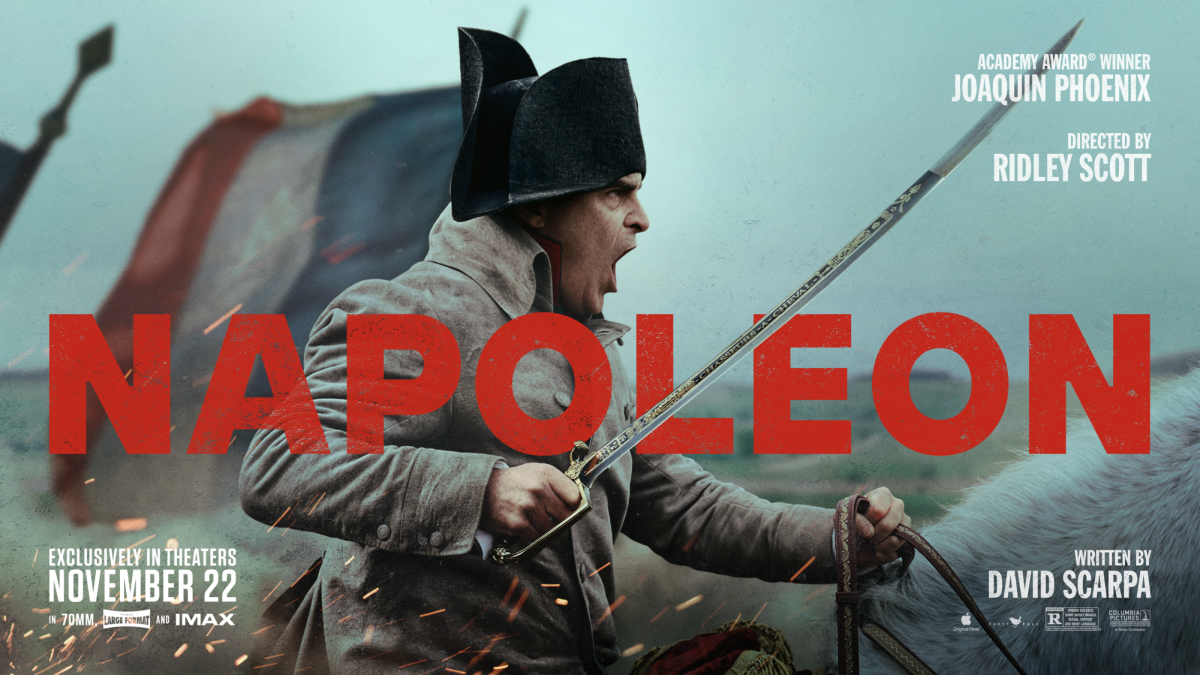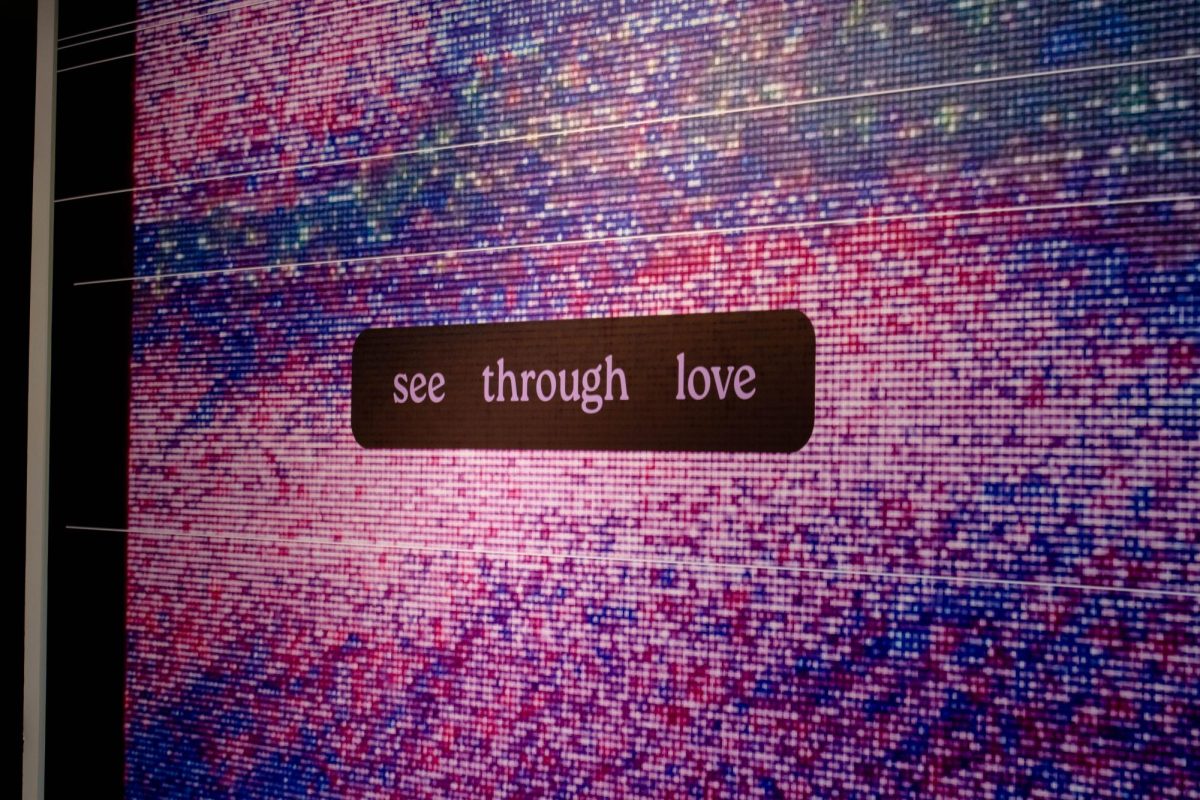“Napoleon” is a visually spectacular and intense look into the life of one of the most significant men in history.
Ridley Scott brilliantly recreated the look of post-revolution France as he captured the turbulent life of Napoleon Bonaparte in “Napoleon.” The film immerses the viewers in the military battles and personal challenges that the emperor went through around the start of the 19th century.
Joaquin Phoenix gives a skillful performance as Bonaparte, with a seemingly constant scowl on his face as he navigates love and war. This is not the first time Scott has worked with Phoenix, as the actor played the supporting role of Commodus in “Gladiator.”
The screenplay traverses significant moments in Napoleon’s life, including his leadership in some of the most important battles in French history. Viewers see the political landscape of early 1800s Europe through meetings between Napoleon and other notable leaders of the time.
The film also delves into Napoleon’s personal relationships, particularly his rocky marriage with Joséphine de Beauharnais (portrayed by Vanessa Kirby). These scenes give Bonaparte even more depth, as we see his personal life beyond his political achievements.
The film was shot at sites all over England, with some scenes filmed in Malta and Morocco. This on-location filming along with the set and costume design add to the immersive nature of the film. The battle scenes are particularly remarkable as they vividly recreate past wars by fusing modern visual effects with realistic stunts.
However, throughout the film, there are many historical inaccuracies added for the sake of drama. Some events in the fictional timeline of Napoleon and Joséphine’s relationship do not align with the real-life chain of events or were made up entirely. The movie also depicts the French army firing at and damaging the Egyptian pyramids, which never happened in history.
Moreover, the runtime of the movie is not justified, and the scenes feel empty at times. If someone was not interested in Napoleon before, this movie would likely not change their mind. You get a glimpse into his love for Joséphine but not what drives him to be such a powerful military leader.
Napoleon is seen in this biopic as ill-tempered and immature, which at times can be humorous, but can also cause wonder as to why he was seen as such a great emperor. There is no mention of any policy change in France or how the shift in power affected the French people.
Scott seemed interested in Napoleon’s wife and his wars. That being said, he does a compelling job of depicting those. The cinematography and color coding make the movie pleasing to the eye, showcasing his talents as a director.
Napoleon is an admirable movie but not one of Scott’s best. The performances are commendable and the film as a whole offers insight into the life of one of the most grandiose figures in history but is too narrowly scoped to pan out to something excellent.








